It is that time of year for the cavalcade of lists of predictions to start appearing in the media and blogs. So with that in mind I will do my best Carnac the Magnificent  impression and share my electric vehicle predictions for 2018. This predictions post will focus on developments in EV charging technology and charging networks.
impression and share my electric vehicle predictions for 2018. This predictions post will focus on developments in EV charging technology and charging networks.
Following are eight charging predictions for 2018 – some logical and others pure speculation:
Tesla Opens 50 “Super” Supercharger Centers/Lounges Worldwide: Tesla has a goal of reaching 18,000 Superchargers by end of 2018, but I think they will fall a bit short and reach a still impressive 16,500. One way the company will scale up the number of Superchargers more quickly, however, is to open dozens of its new combo charging centers/lounges like the one opened in November in Kettleman City. Look for Tesla to open about 50 of this “super” Supercharger centers/lounges in 2018, which would add at least 2,000 stations.
GM Announces a New Fast-Charging Center Concept: GM will partner with a casual or fast-casual restaurant chain such as Panera Bread or California Pizza Kitchen and open combination fast-charging stations, GM EV showrooms and food-service centers in 2 California test locations. These test-concept centers will also feature special charging stations for Chevrolet Bolt drivers using the Maven Gig ride-sharing program.
A Major US Retailer or Quick-Service Restaurant Chain Announce a Major EV Charger Initiative: Many restaurants and retailers have installed EV charging stations at various locations, but in 2018 expect to see a major retailer or restaurant chain announce a significant national or regional roll-out or expansion of EV charging stations.
Subscribe to our email alerts now!
Potential companies include IKEA, which already has charging stations at 29 of its 45 US stores, an upscale quick-service chain like Panera Bread or the Amazon-owned Whole Foods supermarket chain. Brands with an upscale (early EV adopters) customer base, loyalty programs and dwell times of around 30 minutes or more are likely candidates. Amazon, for example, could tie its Amazon Prime program to its EV charging policies at Whole Foods Markets.
Several Automakers Announce Plans to Include Wireless Charging in New EVs: In November 2017, SAE International published a new specification for wireless EV charging up to 11 kW of power, and the circular coil was chosen as a standard for the test stand and is considered a major step toward commercialization. Additionally, SAE standard ratification is hopeful by the end of 2018, enabling many automakers to include wireless charging in EVs beginning in 2020-2021. BMW has announced that their 530e iPerformance will have available wireless charging sometime in 2018. Expect wireless charging technology providers such as Qualcomm and WiTricity and several major automakers to announce plans in 2018 to include wireless charging in future BEVs and PHEVs. I expect BMW and Mercedes-Benz, for example, to announce plans to include wireless charging in all new EV models by 2021.
US Reaches 60,000 Installed Public Chargers: As of December 28 and according to the Alternative Fuels Database, there were 19,800 public and private charging stations and 53,047 chargers in the US. Counting only public stations, the numbers drop to 17,136 stations and 46,902 chargers.Look for a significant expansion in 2018, especially at workplaces, hotels/resorts and retail locations.
More Oil/Energy Companies Will Diversify and Acquire EV Charging Companies: Most oil and energy companies now recognize and admit that the future of transportation will be battery-electric vehicles powered by solar and wind generated electricity. The only difference among oil/energy companies is how quickly the transition away from gas/diesel-powered vehicles will take. In 2017 Royal Dutch Shell acquired New Motion, the largest European EV charging network and formed separate Ionity and Allego to add fast chargers to European petrol stations.
Expect to see one or two oil/energy companies, such as ExxonMobil or BP, enter the EV charging market in 2018 either through acquisitions or partnerships. For the giant oil companies with billions of dollars in capital reserves, buying a charging network is first and foremost a defensive move to beat competitors to the game, but also a way to better understand the very different business models and industry dynamics of EV charging.
Chart Source: Navigant Research
A Major Tech Company Enters the EV Charger Market: If you assume that there are more than 1 billion homes in the world and that all of them will have at least 1 EV charger by 2050 at the latest, the home EV charger market is likely to reach more than $250 billion. Add in charging equipment for retailers, office parks, apartment complexes, convenience stores, hotels, restaurants, schools and other commercial locations and you might be looking at a $1 trillion charging equipment market. 2018 could see one of the major technology companies such as Apple, Google or Cisco enter this massive future market opportunity.
- Google could brand chargers under the Nest product line and establish a beachhead before competitors in the future vehicle to grid (V2G)/vehi
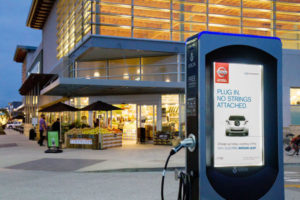 cle to home (V2H) and home energy management system space. With its Waymo autonomous driving technology division and a future of self-driving cars, its chargers could be optimized to work with autonomous vehicles. And Google could decide to use its Android mobile operating system and advertising solutions to create a mobile advertising-based EV charging network, perhaps by acquiring a company like Volta Charging.
cle to home (V2H) and home energy management system space. With its Waymo autonomous driving technology division and a future of self-driving cars, its chargers could be optimized to work with autonomous vehicles. And Google could decide to use its Android mobile operating system and advertising solutions to create a mobile advertising-based EV charging network, perhaps by acquiring a company like Volta Charging. - Apple also straddles multiple categories, with its array of mobile and computer devices, Siri voice assistant and reported plans to enter the autonomous vehicle technology race. Several years ago Apple was reportedly going to enter the home energy management space, but we’ve heard little about this in recent years. That said, while I don’t really think Apple will enter the charger market, it is not hard to envision Apple-branded EV chargers that are beautifully designed and optimized to work with the iPhone, Apple Watch and Siri.
- Cisco is currently a major player in the auto industry through its Control Center solution, an automated connectivity management platform used by more than 50 car brands to run connected car (IoT) services. With companies like ChargePoint building out what is in essence a cloud-based charging network infrastructure, don’t be surprised if Cisco launched a wireless charging system supported by its Control Center IoT/connected car solution. Charging activity and behavior produces vehicle and user data that the charging networks and automakers will find increasingly valuable.
Smart Chargers/Artificial Intelligence: Look for charging equipment and network companies to make their charging apps and solutions smarter, including the use of artificial intelligence. You’ll be able to talk to your charging app via a home voice assistant (e.g., Google Home, Alexa, Siri) to start and stop charging, learn your charging speed, range and estimated time to reach a full charge. You’ll also be able to talk to your charging app and find out the nearest available charger and what kind of amenities are available. Your car’s charging app will learn your charging habits and send you a mobile push notification if it notices you haven’t scheduled your EV to charge per your typical routine.
A Shortage of Electricians in the US Causes Delays in the Installation of EV Charging Stations: With strong growth in solar and wind energy jobs and the burgeoning need for electric vehicle chargers, the need for experienced electricians could outpace supply. The US Bureau Of Labor Statistics predicts 14% annual growth for electricians. My guess is the the BLS forecast does not account for massive adoption of electric vehicles and so I expect much larger growth in demand for electricians, especially in markets with higher than average EV adoption rates.
What have I missed or which predictions do you I think I got completely wrong? Let me know in the comments.
 Announcing the acquisition of EVAdoption by Paren →
Announcing the acquisition of EVAdoption by Paren →
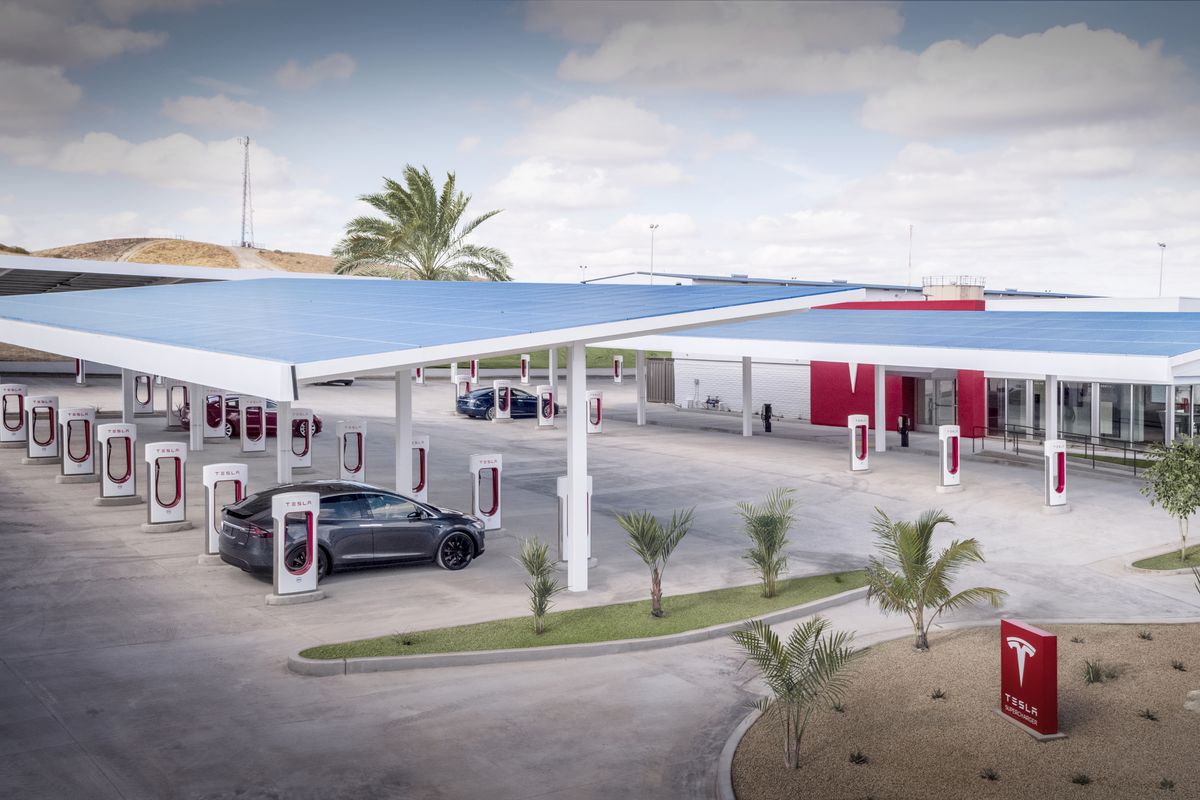
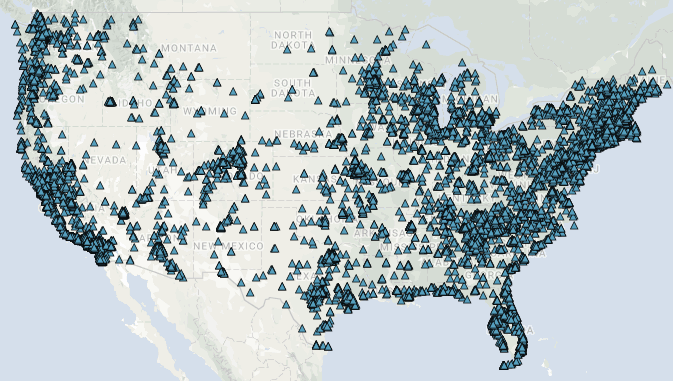
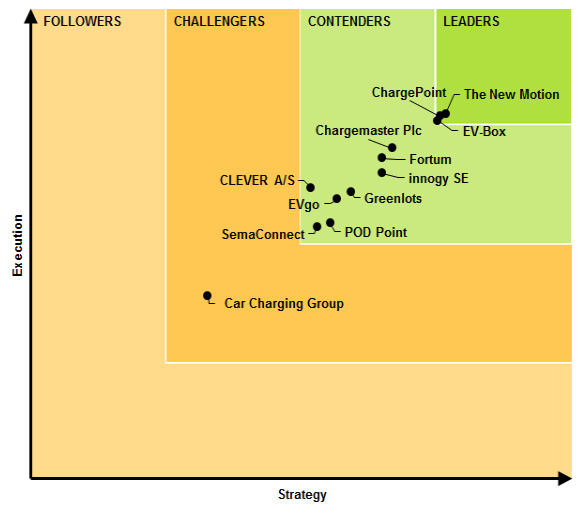
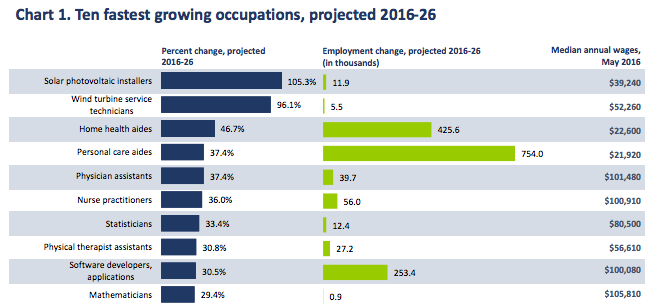
One Response
This is a very interesting post. The “electric revolution” won’t stop sooner, and that’s awsome. We need cleaner air in our cities, both for our health and for the environment. All electric means of transport (car, buses, motorcycles…) together with sustainable solutions (car sharing, bike sharing…) might be an anwser to pollution problem.